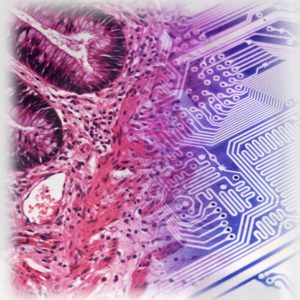Crossing Boundaries
Earlier last year there was an article entitled “Crossing Boundaries” that was published as an e-article in the American Journal of Surgical Pathology (Himenz MC, Leung ST, Park JY AJSP 38:2;March 2014).
 The authors conducted a comprehensive survey of medical licensing laws and guidelines regulating the interstate practice of pathology. The study found that the majority of states (32) and the District of Columbia allow for a physician with an out-of-state license to perform limited consultation to a physician with the specific state license. Several states (5) prohibit physicians from consultation without a license for the specific state (Connecticut, Louisiana, Michigan, South Carolina & Tennessee). Overall, the results revealed the heterogeneity of licensure requirements between states.
The authors conducted a comprehensive survey of medical licensing laws and guidelines regulating the interstate practice of pathology. The study found that the majority of states (32) and the District of Columbia allow for a physician with an out-of-state license to perform limited consultation to a physician with the specific state license. Several states (5) prohibit physicians from consultation without a license for the specific state (Connecticut, Louisiana, Michigan, South Carolina & Tennessee). Overall, the results revealed the heterogeneity of licensure requirements between states.
The authors concluded that pathologists who either practice in multiple states, send cases to out-of-state consultants, or serve as consultants themselves should familiarize themselves with the medical licensure laws of the states from which they receive or send cases.
The article does not specifically mention the use of digital pathology for these case reviews or consultations inasmuch as cases physically traveling to consultants outside their home state where the originating pathologist, treating physician, laboratory and of course the patient were likely located.
Nonetheless, I think it would be fair to argue that perhaps the same state medical board regulations regarding interstate consultation (and commerce) may apply for digital pathology. Thus, it could be argued that if you are reviewing images (and/or other laboratory findings) from Connecticut, Louisiana, Michigan, South Carolina & Tennessee, a license to practice medicine in those states would likely be required.
Some states allow for occasional, without defining “occasional” without the need for an in-state license. And on and on.
The point is we do not have a nationalized system for physician licensing and each state medical board sets their own rules and requirements for obtaining and maintaining licensure and handles disciplinary actions, warnings, suspensions, reinstatements and terminations according to their own by-laws.
Recently they have all had to deal with the issues of interstate practices with increasing use of telemedicine applications for patients and providers that may be in different states.
However, there is a larger problem, in my opinion, that will need to dealt with and that is what is happening with the rise of accountable care organizations has increased the consolidation of hospitals and health systems and laboratories.
 Pathologists are increasingly at a distance from the point of clinical service, where the clinician-patient interaction occurs as well as increasingly distant from the point of grossing, technical processing, slide creation and case distribution.
Pathologists are increasingly at a distance from the point of clinical service, where the clinician-patient interaction occurs as well as increasingly distant from the point of grossing, technical processing, slide creation and case distribution.
Fortunately, digital pathology technologies can help bridge some of the divides bringing pathologists closer to their laboratories and their patients. No longer will the technology be a “nice to have when we have the resources or need” but a “must have” to remain competitive in the marketplace in changing times in healthcare.

































